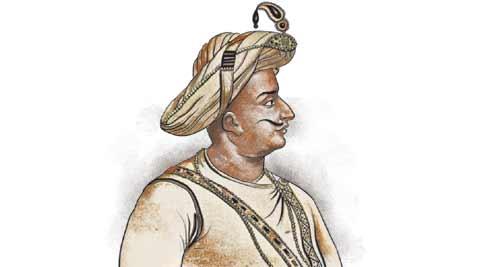Tipu Sultan was a ruler of the Kingdom of Mysore in Southern India during the late 18th century. He is a controversial figure in Indian history, with some considering him a brave freedom fighter who fought against British colonialism, while others view him as a cruel tyrant who oppressed his own people. The statement that "Tipu Sultan was a monarch, not a freedom fighter" is technically true, but it is also a bit simplistic and does not capture the complex legacy of Tipu Sultan.
On one hand, Tipu Sultan was indeed a monarch who ruled over a kingdom that was not independent. He came to power after the death of his father, Hyder Ali, in 1782 and continued to resist the British colonial expansion in Southern India. He fought several wars against the British, including the Anglo-Mysore Wars, and was ultimately killed in battle in 1799. From this perspective, it can be argued that Tipu Sultan was a monarch who defended his own kingdom, rather than a freedom fighter who fought for Indian independence.

On the other hand, it is important to note that Tipu Sultan was not only fighting for his own kingdom but also for the broader cause of resisting British colonialism. He was a strong opponent of the British East India Company and worked to unite various regional powers to challenge British hegemony in India. He also supported the cause of Indian independence and wrote letters to foreign powers seeking their help in liberating India from British rule. From this perspective, it can be argued that Tipu Sultan was indeed a freedom fighter, even though he was technically a monarch.
It is also important to acknowledge that Tipu Sultan's legacy is complex and controversial. While some view him as a hero who fought against British colonialism and defended his own people, others view him as a cruel and oppressive ruler who committed atrocities against non-Muslims, such as the forced conversion of Hindus to Islam and the destruction of Hindu temples. Tipu Sultan's policies towards non-Muslims have been criticized by many historians and activists, who argue that he was not a secular ruler but rather a religious zealot who saw himself as a defender of Islam.
In conclusion, the statement that "Tipu Sultan was a monarch, not a freedom fighter" is technically true but does not fully capture the complex legacy of Tipu Sultan. While he was indeed a monarch who ruled over the Kingdom of Mysore, he was also a strong opponent of British colonialism and worked to unite various regional powers to challenge British hegemony in India. However, his legacy is also controversial, and his policies towards non-Muslims have been criticized by many historians and activists.